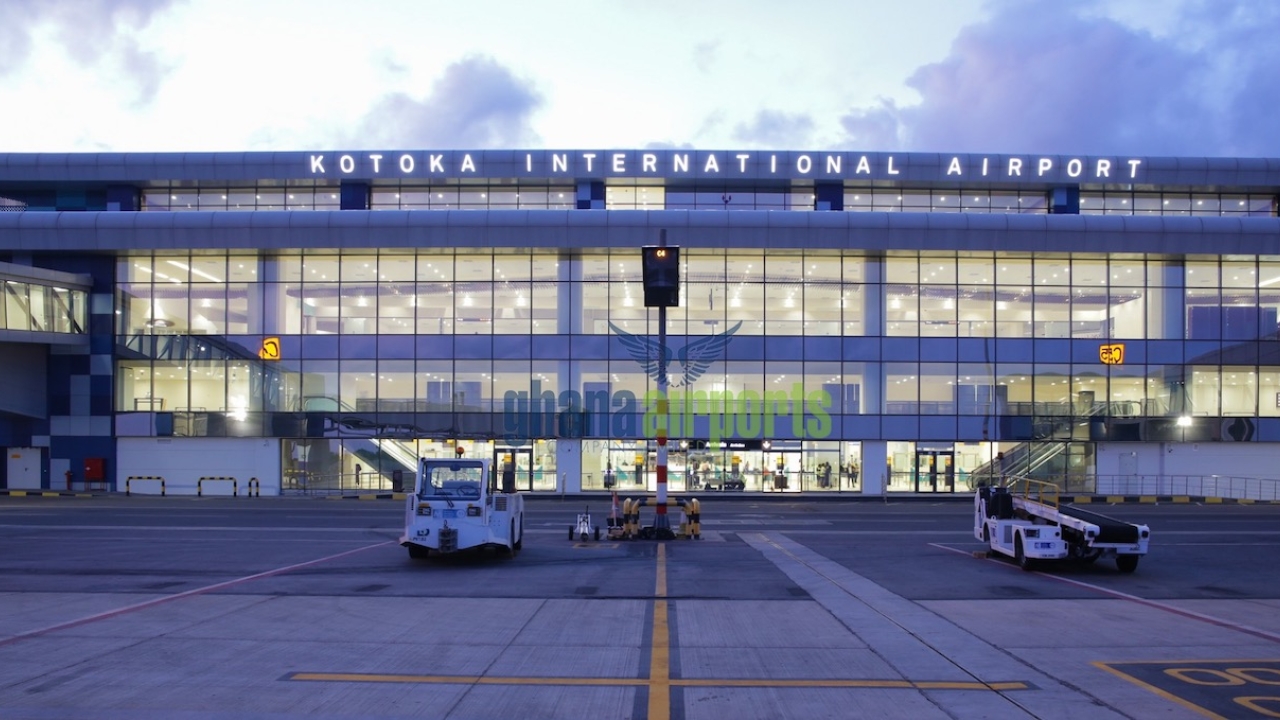It's Ghana be exciting!
A new era takes flight – how Ghana is rising through the ranks as a West African aviation hotspot.

Kotoka International Airport. PHOTO: GACL
To keep up with passenger growth and position itself as a key aviation hub in West Africa, Ghana Airports Company Ltd (GACL) has undertaken several initiatives to develop its airport sector.
Managing and overseeing all airports and aerodromes in Ghana, GACL is focused on sustainable growth, building new facilities, increasing existing capacity and adopting modern technology to enhance the overall passenger experience.
Yvonne Nana Afriyie Opare, appointed managing director of GACL in December 2023, told African Aerospace that the first half of 2024 has already seen some exciting developments for Ghana’s airports.
“In June, we welcomed ITA Airways, as the 24th international operator at Kotoka International Airport. The Italian carrier currently serves four weekly flights between Accra and Rome.
“Additionally, Ethiopian Airlines has been granted fifth freedom rights by Ghana’s Civil Aviation Authority to fly from Accra to Toronto in Canada.
“Due to start in the first quarter of 2025, this will be the first direct link between the two countries. We also operationalised Prempeh I International Airport in Kumasi on 1 July, having completed a new terminal building, apron, taxi links and fire station at a cost of €125 million.”
With a passenger throughput of 800,000 per year, plans are now under way to extend Kumasi’s runway from 1,891m to 2,320m in length by the end of this year.
“We currently have two domestic carriers serving the airport: PassionAir and Africa World Airlines. However, we are in discussion with various other carriers to operate out of Kumasi which we hope to announce later this year in line with our runway extension and the airport’s certification as an international hub,” continued Opare.
She also noted that elsewhere in GACL’s portfolio, Tamale International Airport opened its new terminal in 2023 with the capacity to serve 400,000 passengers per year.
Driven by increasing passenger confidence, political stability and a flight time of around six hours from most European destinations, GACL is seeing steady growth in passenger traffic across its network.
In 2023, Ghana’s airports welcomed 3.95 million passengers, surpassing pre-Covid (2019) passenger traffic of 3.19 million.

Meanwhile, the number of passenger aircraft movements was 43,858 in 2023, a slight decrease from 2019’s 46,996 movements, which Opare attributes primarily to, “an increase in the use of larger aircraft with greater passenger capacity.”
To enhance its passenger experience, GACL is also embracing biometric technology and is working with SITA to deploy e-gates at Kotoka before the end of the year.
“We are already working with Ghana’s immigration services using biometrics to monitor passengers entering the country and once we’ve installed e-gates for departing passengers at Kotoka, we plan to implement this technology at our other international hubs too,” noted Opare.
Moreover, GACL has ambitious plans to develop its second airport city in Accra to complement its existing aerotropolis.
“In line with plans to diversify and grow revenue opportunities, Airport City 2 will cover 100 acres with amenities including a sports complex and amphitheatre, as well as hotels, restaurants and office space. About 85 per cent of GACL’s revenue currently comes from aeronautical activities and the aim is to balance this more evenly with non-aeronautical revenue streams, for which Airport City 2 will play an integral role.”
It has certainly been a busy first six months in office for Opare, whose extensive background as a leader in the commercial real estate sector, brings a fresh perspective to overseeing GACL’s operations, as well as the development of non-aeronautical revenue opportunities.
While she credits her team of “highly-professional airport leaders” with helping her run operations, Opare also describes herself as a “hands-on” leader. She is currently enrolled on the International Airport Professional (IAP) programme and is hoping to receive IAP accreditation next year.
As for being a female leader in a traditionally male-dominated industry, Opare said gender should never be an issue, as she underlined her advice to young people coming into the sector: “You must be persistent, consistent and never give up. Never stop at ‘no’; let it be a challenge you turn into an opportunity!”
Stay up to date
Subscribe to the free Times Aerospace newsletter and receive the latest content every week. We'll never share your email address.


